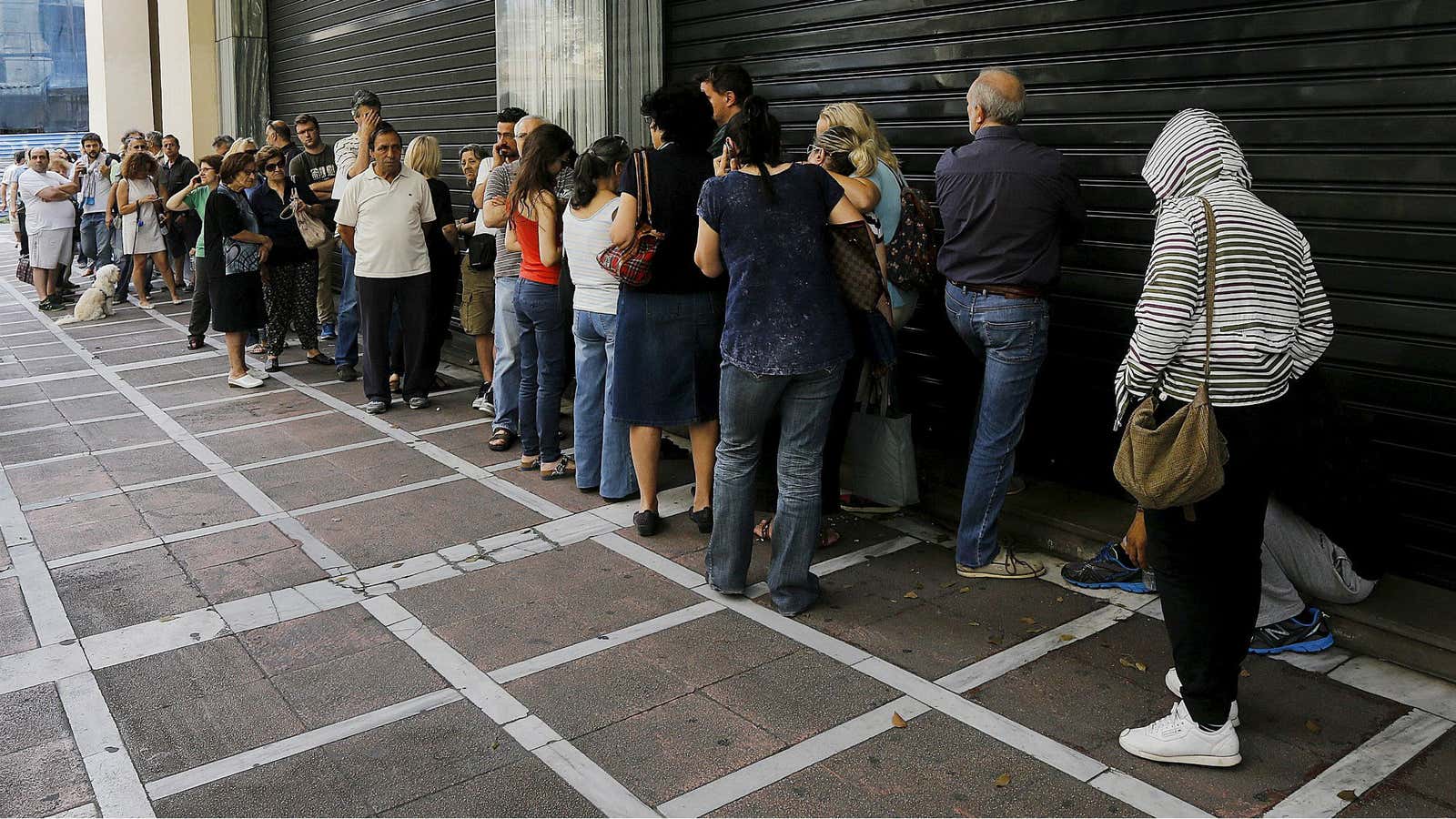If someone offers you a bet that Greek banks will be back to normal next week, you’d be wise to take the other side. The history of capital controls suggests that once they are imposed, they tend to stay in place for a long time.
Currently, Greece’s banks are closed in the run-up to a referendum on the country’s bailout deal on July 5. Customers can only withdraw €60 ($67) in cash per day and all foreign transfers require the approval of a special state treasury committee (in other words, don’t bother).
Capital controls such as these, which focus on restricting outflows, are rarely successful. And according to an IMF study (pdf) of examples over the past 20 years, none of the conditions that made similar restrictions effective in the past are present in Greece today.
The problem, the research shows, is that while restrictions on withdrawals keep a lot of money from leaving the country (as they are designed to do), they also scare away foreign investors from moving cash into the country, for fear that they may never be able to take it out again. Thus, there is still often a rise in the net capital outflow from the country—less cash goes out but even less cash comes in.
The researchers found that without strong economic fundamentals and robust financial institutions—both of which are in short supply in Greece—capital controls on outflows don’t often achieve the desired result. A more sharply-worded research paper reckons that controls on outflows tend to “introduce major distortions and breed corruption.”
The exemplar of success is Malaysia in 1998, which imposed restrictions during the Asian financial crisis and kept them for eight months. The move produced a “faster economic recovery, smaller declines in employment and real wages, and more rapid turnaround in the stock market” than if it had signed up to an IMF bailout, according to academics who have studied the case (pdf).
That said, another study (pdf) notes that “there is Malaysia and there is everybody else.” The unique circumstances that landed Malaysia in trouble, and the credibility of its institutions in responding to them, made its relatively short-term controls effective.
If Greece looks closer to home for recent examples of capital controls in action, there is Cyprus and Iceland. But fellow euro-member Cyprus, which imposed controls in 2013 that lasted for two years, did so as part of the signing of a multi-year bailout program; Greece’s current bailout deal expires tomorrow. And Iceland, which imposed controls in 2008 and has only recently started to talk about lifting them, is in charge of its own currency, unlike Greece.
No wonder, then, that when giving its blessing to Greece’s capital controls, the European Commission warned “the free movement of capital will however need to be reinstated as soon as possible.”
